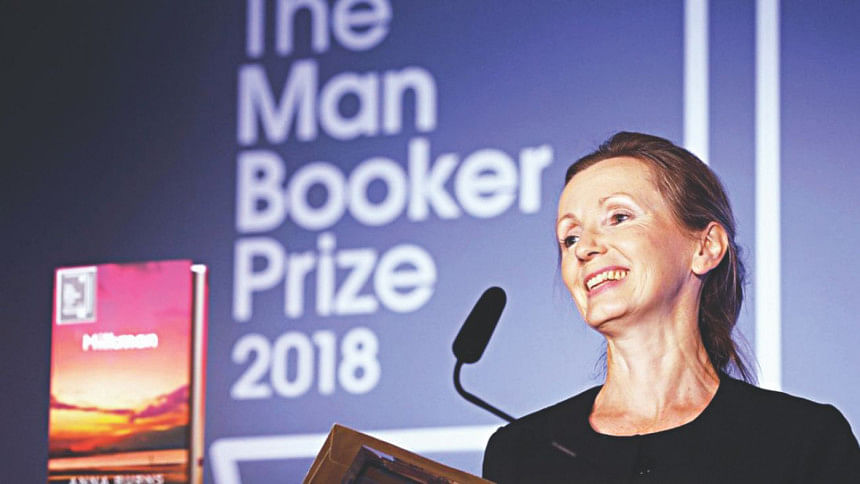Anna Burns' Milkman Takes Place Wherever You Are

We read about this girl. That she may have a name doesn't matter. What matters is that she is a'middle-sister', 'middle' as in relative, as in younger sister to someone, older sister to someone, sister-in-law to someone, and daughter to someone else. To the society, too, she is middle-sister. Weighed down by these relationships, these social conventions which all stem from her being female, this 18-year-old struggles to defend herself against the gossip circulating around her. No, she isn't having an affair with that paramilitary who follows her around town. No, she isn't encouraging him to spy on her daily routine or accost her in the woods, in the parks, always on her way back home.
The unnamed protagonist of Anna Burns' Milkman feels shockingly real, especially to a woman reading. We live the novel through her thoughts: how she manoeuvers her way around a community that judges, stalks, and feels entirely entitled over a woman's place in the world. You're known as a "normal woman" there if you're not a feminist.
Middle-sister's brother-in-law thinks she shouldn't read while she walks, her other brother-in-law thinks she should jog faster, and her sister and mother lecture her for frolicking around town with a dangerous man. None of these judgments are necessarily unreasonable, in the spirit of personal safety, but none of these people have a minute to hear her side of the story either. "Too many synonyms, too many adjectives," was my first thought when I started reading the book. Then I realised that I was simply feeling the protagonist's plight. Her neighbours and relatives inundate her with so many words, so much unsolicited advice, that she can't utter a word in reply. Inside her mind, though, where the novel takes place, words drift and flow and explode with fury. Only a few of them escape her mouth.

The text is dense with relatable little anecdotes. The pages in my copy are swamped with highlights, exclamation points and the words "SO ON POINT" beside every third line. Speaking about her father's depression, middle-sister explains how, "Males and mental hospitals went together far less than females and mental hospitals went together. In a man's case, this equalled a gender falling-down in pursuance of his duties, totalling a failure above all to keep face." On being stalked, she says, "You cannot go out with someone just because you feel sorry for them because they've had a long run of death in their family; and particularly you cannot do it if […] from the first moment of ever setting eyes on them […] something about them makes you feel sick." "Why was he presuming I didn't mind him beside me when I did mind him beside me?" she wonders.
It's also a deeply political novel without shoving the politics down your throat. Like the characters' names, the city, the country, and the political events aren't mentioned by name either. It's all about the problems with'state-renouncers', with people "overthewater" and "over the road". Set in 1990s Belfast, the unnamed Irish town is racked by remnants of 'The Troubles', the thirty-year civil rights conflict between the unionist Protestant majority and the mostly Catholic minority in northern Ireland. The latter had wanted to identify as the Republic of Ireland. The violence of the struggle crops up in the novel through the characters' traumas, the bombed and deserted locations, the memory of beheaded dogs all over the city. This is probably why our protagonist claims to not like the 20th century (she buries herself in 19th century literature). As a result, her thoughts also resemble the ramblings of what we associate with early-20th century prose, but they're also structured and descriptive enough to account for her 19th century tastes.
Most other reviews have called Milkman baffling and experimental. It really is those things, but not in a way that alienates the reader. By stripping the story entirely of names – for characters, for places, for historical events – it proves how a tale, an experience, doesn't require the support of labels. It can exist on the power of storytelling alone. All it need achieve is to engage and connect with the audience, which it does beautifully. Reading it, you realise that your personal interactions with society, with prejudice and political strife, with life, can be identical the world over. You feel validated and a little less lonely. You will also laugh quite a lot.
A graduate of History and Literature from Columbia University, Sarah Anjum Bari is a member of the Star Weekend team.

 For all latest news, follow The Daily Star's Google News channel.
For all latest news, follow The Daily Star's Google News channel. 



Comments